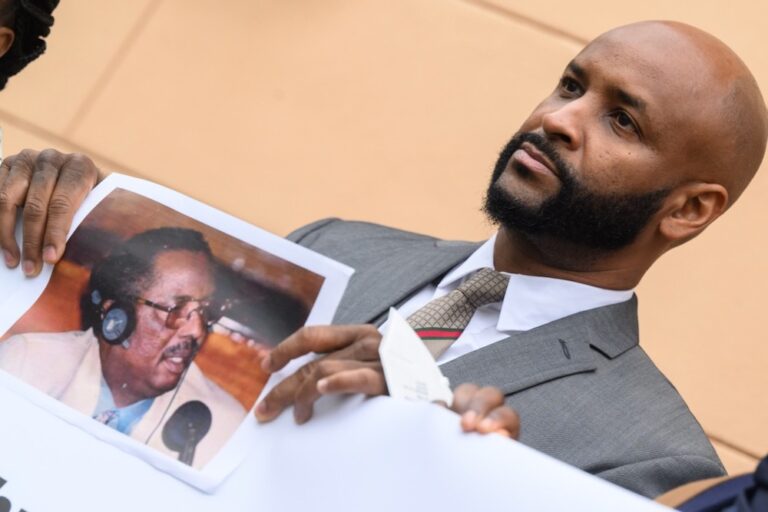Bubacar Ceesay says he was arrested and tortured in The Gambia after he had published a story on corruption in the "Independent" newspaper.
(IFJ/IFEX) – 20 August 2010 – The International Federation of Journalists (IFJ) today warned that the continuing crisis for independent journalism in The Gambia adds to the uncertainty facing one of the country’s journalists who is detained in Israel.
The IFJ says immigration authorities in Israel should urgently review the detention order against Bubacar Ceesay, who claimed asylum when he entered the country without travel documents last year but has been in detention ever since.
“The brutal repression of journalists in The Gambia is well documented and includes a travel ban,” said Aidan White, IFJ General Secretary. “This journalist has experienced enough suffering and the uncertainty over his future adds to his fears. His case merits special consideration on humanitarian grounds.”
Ceesay says he was arrested and tortured in The Gambia after he had published a story on corruption in the Independent newspaper. He fled the country and arrived in Israel where he was detained when he failed to provide a passport or any identity documents. The journalist is challenging his detention with the backing of the National Federation of Israeli Journalists (NFIJ), an IFJ affiliate.
In May, a court in Tel Aviv ordered his release pending a decision on his application for refugee status but last week immigration authorities won an appeal against the decision and he remains in prison.
The IFJ says Gambia’s terrible record on press freedom includes evidence of abductions, illegal detention and impunity in the killing of journalists. A prominent journalist, Deyda Hydara, founder and editor in chief of the newspaper The Point, was killed in 2004, allegedly by the country’s secret services. His murder remains unresolved. Last year, President Yahya Jammeh reacted to calls for justice for Deyda Hydara by threatening to kill journalists who defy his rule.
Seven journalists’ leaders were arrested and charged with sedition and defamation in June. Six of them were sentenced to a two year jail term before their release by presidential pardon in August, following a global campaign by trade unions, human rights and press freedom organisations led by the IFJ and the Gambian Press Union GPU, the IFJ affiliate in The Gambia.
Meanwhile, the court of the Economic Community of West Africa States (ECOWAS) has ordered Gambia to release Chief Ebrima Manneh, a reporter with the Daily Observer, who disappeared in 2006.
“The Gambian regime’s record on press freedom should be enough to provide prima facie evidence of why journalists seek protection abroad,” added White.” We commend the solidarity shown by our Israeli colleagues in this case and urge the authorities to release the journalist and offer him protection.”


